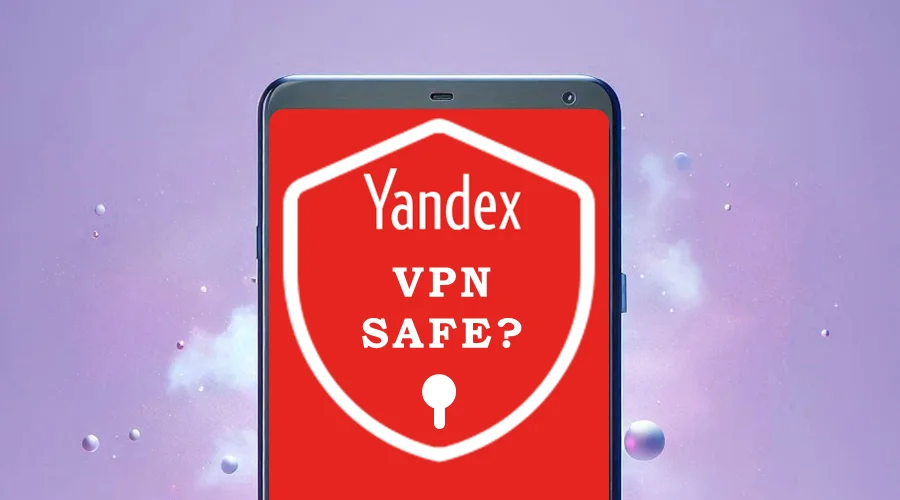Do I need a VPN for Torrenting? All You Need to Know
12 min. read
Updated on
Read our disclosure page to find out how can you help VPNCentral sustain the editorial team Read more

Do I need a VPN for torrenting is a legitimate question anyone using torrent files should ask. This article will answer all your questions.
Torrenting is undeniably an efficient method for sharing and downloading files.
However, because it implies sharing your IP address and it’s often associated with copyright infringement, it’s natural to wonder if you need extra measures of safety.
Let’s delve into the intricacies of torrenting, the role of VPNs, and practical advice for safe torrenting.
Do I need a VPN for torrenting?
Yes, you need a VPN for torrenting. It will ensure anonymity and security. Torrenting exposes your IP, making you vulnerable to surveillance and cyber threats. A VPN hides online activity and hides your IP address.
It also helps avoid ISP throttling, which can slow down your internet speeds and allow access to geo-restricted content.
Here’s a quick overview on how VPN features can help you when torrenting:
- Encryption: A VPN encrypts the data sent from your device, turning it into a code that can only be deciphered with the correct encryption key. This stops malicious torrent users as well as ISPs and other entities from knowing what you do online.
- Hiding IP addresses: A VPN masks your real IP address, making it difficult for anyone to trace your internet activity back to you. In a torrent swarm, other users will only see the VPN server’s IP address, not yours.
- Additional Layers of Security: Extra fetures like a no-logs policy, an emergency kill switch and safe browsing protection that stop access to known malicious sites can protect your privacy and prevent certain cyber attacks.
How about we go into greater detail on this?
Risks associated with torrenting
Let’s take a closer look at the main risks of torrenting and how the above-mentioned VPN features might help stop them or at least diminish their impact.
Data leaks
When you participate in a torrent swarm, your IP address becomes visible to all other peers. This exposure can lead to targeted cyber attacks or doxxing.
Just last month, a security vulnerability in a WiHD, a French video torrent community exposed the data of 97,327 accounts .
The data included usernames, emails, IPs, ISP information, and even passwords.
➡ A VPN for torrenting encrypts your internet traffic, which means that even if a data breach occurs, the information intercepted by hackers would be heavily modified and, therefore, much less useful.
Basically, your activity will appear as unreadable text that can’t be deciphered.
Your real IP address and location remain hidden, protecting your identity and download history.
Legal consequences
Downloading copyrighted material through torrents without permission can lead to legal notices, lawsuits, hefty fines, and (rarely) even jail time.
These consequences vary depending on the country and the situation. The US, UK, and Germany are among the countries with the harshest punishments.
For instance 2009, a Minnesota woman was fined $1.9 million for downloading 24 songs via a file-sharing service.
On the other hand, some countries do on paper have privacy laws but don’t do much to actually enforce them.
➡ While a VPN does not legalize the download of copyrighted material, it can help protect your privacy by hiding your IP address while downloading and encrypting activity.
This makes it more difficult for copyright holders and authorities to track your torrenting activity. Not knowing who’s torrenting makes it impossible to enforce any legal action.
That said, it’s best you stray away from illegal torrenting altogether. Always check the description and the comments of the torrent files before you download them to make sure you stay within the limits of the law.
ISP throttling and bans
Some Internet Service Providers (ISPs) monitor P2P traffic and may throttle your internet speeds or ban your service for torrenting.
P2P isn’t illegal in itself, so the reason why ISPs do this is actually to manage their networks.
Torrenting requires a lot of network resources and can lead to an overall slower connection for all subscribers of the ISP. So they identify torrenting/P2P and artificially slow it down.
A notable example is when Comcast was caught throttling BitTorrent traffic in 2007, which led to an FCC investigation.
Comcast initially denied that they were specifically targeting BitTorrent traffic but later admitted to “delaying” peer-to-peer communications as a form of network management.
➡ A VPN encrypts your internet traffic, making it difficult for your ISP to discern the nature of your online activities and apply throttling measures.
Minimize the impact of cyber attacks
Don’t get me wrong. A VPN isn’t able to detect and block viruses, but it can in some ways secure your connection so if you get a virus, the impact won’t be as big.
Torrent files can be a breeding ground for malware phishing attacks, viruses, and other malicious software.
Not all torrent sites provide legal and regulated torrent files, so if you’re not playing safe, you may compromise your device, along with all personal data on it.
For instance, a poisoned BitTorrent client incident in 2018 led to a malware outbreak that attempted to infect 400,000 PCs, as reported by Tripwire.
➡️ While a VPN does not prevent malware per se, it can provide an added layer of security when combined with reputable antivirus software.
It can prevent accidental downloads from unsecured websites by allowing access to safer torrent sites that may not be available in your area. Furthermore, many VPNs do nowadays employ extra security features for safer browsing.
When you enable these, the VPN will stop you from accessing sites that were associated with viruses, phishing, or other forms of cyber threats in the past.
Network security
Using torrents can also pose a risk to network security, especially if you’re on a corporate or public network.
This can not only affect your device and data but can also be compromising for other people connected to the same network.
➡ If you accidentally download compromised software, a VPN’s encryption can act as a barrier.
It will make it more difficult for attackers to exploit vulnerabilities in your network and get ahold of private information or compromise devices.
That said, it can’t stop or remove the virus. For that, you’ll need a strong antivirus and potentially professional help.
How to stay safe when torrenting
⚠️ Disclaimer: We do not condone illegal torrenting, and using a VPN to engage in such activities is not encouraged.⚠️
To torrent safely and minimize risks, consider the following practical tips:
Use a reliable VPN
Now, using a VPN is essential, but not just about any VPN will work with uTorrent, qBittorrent, or other clients. You’ll have to use a premium-level VPN with built-in privacy features.
Always use a reputable VPN with a kill switch.
This feature cuts down your internet connection if the VPN stops. Basically, it prevents you from downloading torrents when you’re not protected by the VPN.
This will therefore prevent data leaks in case of disconnections. Your IP address and torrenting activity remain completely confidential.
Furthermore, it’s essential to use a VPN that keeps no activity logs.
This essentially means that the service itself doesn’t know and cannot know what you do online. This will prevent them from sharing your data, even if legally bound, because there’s no data to begin with.
Lastly, good encryption algorithms are a must. The VPN you use should employ unbreakable options such as ChaCha 20 or AES-256 bit. These are practically indecipherable.
As much as I like free stuff, the sad truth is you won’t find a good torrenting VPN that’s free.
Free VPNs either don’t have enough data to support torrenting, log, and sell your data, or are simply very slow for any downloading to actually take place.
But if you want to save some bucks, you can get good deals if you subscribe for a longer period of tie.
Look into P2P-friendly VPNs
Select a VPN that is friendly to peer-to-peer traffic and does not throttle bandwidth or block torrent traffic.
These special VPNs come with a bunch of advantages. They’re super fast, and they don’t crash easily, so you can share files without any problems.
One important feature to look for in a VPN that claims to be P2P friendly is special servers that are set up just for sharing files.
Verify Torrent sources
Only download torrents from reputable sources.
Look for verified uploaders or sites with user ratings and feedback. If you notice any comments that say the file is malicious or infected, click away.
The tricky part about torrent sites is that many host both legal and illegal torrents.
Because many of these files operate by allowing users to share files without much intervention, some may share unsafe or unrightfully owned torrent files.
Some reputable torrent sites that you can trust include:
- Internet Archive: The Internet Archive’s “Wayback Machine” includes a vast collection of public domain content, including books, music, movies, and more. You can find these items available for free download through their torrent service.
- Public Domain Torrents: This site offers a collection of classic movies and videos that are in the public domain. You can download these movies legally and for free.
- Legit Torrents: Legit Torrents hosts a collection of legally available software, games, music, and more. It’s a platform for open-source and freely distributable content.
- Jamendo: Jamendo is a music platform that allows artists to share their music for free. You can legally download and share music from independent artists under Creative Commons licenses.
- Linux Distros: Many Linux distributions, like Ubuntu, Debian, and Fedora, are distributed via torrents. Downloading these Linux distributions via torrents is not only legal but also often faster and more reliable.
- Etree: Etree is a community-driven site focused on sharing live concert recordings, particularly from bands that allow fans to record their shows. It’s a legal resource for concert enthusiasts.
- Project Gutenberg: Project Gutenberg offers a vast collection of free public-domain eBooks. You can download classic literature and other written works legally.
- Bitlove: Bitlove is a platform for subscribing to podcasts through torrents. It allows you to legally download podcast episodes via BitTorrent.
Run antivirus scans
Always scan downloaded files with reliable antivirus software before opening them. If it finds something, make sure to remove any trace of the file from your computer as soon as possible.
For best security, enable real-time protection on your antivirus.
These days, most anti-malware and antivirus software have this feature. Even built-in tools like Windows Defender have it.
Stay informed
Be aware of the copyright laws in your country and stay updated on the legalities of the content you’re downloading.
As I mentioned, it cannot always be easy to tell which torrents are legal and which are not.
But, as a rule of thumb, if the source you’re getting your torrent from doesn’t disclose whether it’s legally distributed or is vague about this information, then they probably have no right to share that file.
How different countries approach illegal torrenting
Using a VPN when torrenting is generally a good idea wherever you are. However the risks may be higher if you live in countries with heavy regulations against copyrighted downloads.
The approach to illegal torrenting varies by country, with each jurisdiction enforcing its copyright laws and internet regulations differently:
- United States: The U.S. has a “three-strikes” policy in place, and ISPs may be required to hand over the details of suspected infringers to copyright holders. Repeat infringers can face termination of their internet service.
- European Union: Many EU countries have strict copyright laws, and users can face hefty fines. For instance, in Germany, users can receive “Abmahnungen,” legal notices that demand payment for copyright infringement.
- United Kingdom: In the UK, the Digital Economy Act aims to combat copyright infringement. ISPs send out “educational” letters to users suspected of illegal downloading. While these letters do not demand payment or threaten legal action, they serve as a warning, and persistent infringement could lead to further measures.
- India: Copyright infringement is a serious offense in India, and ISPs are required to have a due diligence framework to ensure compliance with copyright laws. Users found torrenting copyrighted material can face fines and imprisonment. However, enforcement varies across the country, and the use of VPNs is widespread.
- Asia: Countries like Japan and South Korea have very stringent anti-piracy laws. Japan criminalizes illegal downloading, with penalties including fines and imprisonment. South Korea operates a “three-strikes” policy similar to that of the United States.
The use of VPNs in these countries can provide a layer of privacy and security for internet users.
However, it’s important to note that while a VPN can hide your IP address and encrypt your internet traffic, it does not make illegal activities legal.
Responsible use of torrenting technology, with a clear understanding of the laws in your country, is essential.
Conclusion
Do you need a VPN for torrenting? If you’re concerned about privacy, security, and the potential legal implications of torrenting, the answer is a resounding yes. A VPN can provide the necessary shield and peace of mind to enjoy the benefits of torrenting without the associated risks. However, it’s important to use this technology responsibly and to respect copyright laws. Remember, the goal is to stay safe and legal in the vast world of the internet.
When choosing a VPN for torrenting, look for one that supports secure protocols, has a no-logs policy, and offers high-speed connections. By taking these precautions and following the practical advice provided, you can ensure that your torrenting experience is both safe and enjoyable.









User forum
0 messages